
A year of biblical literacy.
Committing to growing as a community in our love, desire, and devotion to Jesus through our devotion to his Scriptures.
In the final week of An Apocalyptic Advent, we behold the Lamb who reigns and learn to live with steady hope, faithful endurance, and allegiance to an unshakable kingdom.
In Week 3 of An Apocalyptic Advent, we uncover how the dragon shapes our desires and how the wilderness becomes God’s school for retraining our loves. Together we are invited to resist the river of false hunger and find true satisfaction in Christ.
In Week 2 of An Apocalyptic Christmas, we see that Herod is not just a villain but a mirror of our own resistance to Jesus’ Lordship. Amid a real spiritual battle, we learn to surrender our inner thrones and find joy under the reign of the true King.
In Week 1 of An Apocalyptic Advent, we discover the real nativity behind the curtain—where a Child is born into darkness, defeats the dragon, and invites us to wake up to His victory. Together we learn to embrace Advent with honesty, courage, and hope.
This week we were invited to reject small visions of church and step into God’s design: a family where women and men honor one another, speak truth, carry burdens, and build up the body together.
In Week 3, we learned how Jesus invites us to reorder our lives around the family He gives us. Together, we discovered that prioritizing God’s household isn’t a burden—it’s where we find belonging, devotion, and the hundredfold life He promised.
Week 2 of our ‘Household of God’ series looks at how Acts 2 shows the Spirit forming us into a family marked by love, unity, and generosity. Our shared life makes Jesus visible in our cities.
The Church isn’t a product to consume but a people to belong to. Not a place “where,” but a people “who.” In this message, we explore what it means to live as God’s family — not an event, but an identity.
Jesus’s story doesn’t end at the resurrection—it continues through us. Empowered by the Spirit, we are sent to join His mission of renewal in the world.
Jesus reigns—not one day, but today. In His Kingdom, the broken are restored, the proud are humbled, and the world begins to be made new.
Jesus saves by surrendering—and calls us to do the same. In this message, we discover how the way of the cross leads to joy, freedom, and true life.
When Jesus speaks, creation responds, light pierces darkness, and grace draws near. In Seeing Jesus Clearly: Jesus Speaks, we encounter the Word made flesh who still speaks life today.
Jesus is the Light of the World who opens blind eyes and exposes every heart. In John 9 we see that some rejoice in His light while others resist it. The question for us is clear: when Christ shines on your life, will you close your eyes—or say, “Lord, I believe”?
We are a forgetful people, prone to be shaped by culture instead of God’s story. Esther reminds us that even when God seems absent, He is faithful and calls us to remember.
Like Esther, we face the choice between comfort and costly obedience. True spiritual renewal comes through dying to self and living fully for Christ.
In a world obsessed with power and victimhood, Mordecai’s resistance in Esther reveals a better way—the path of faithful, vulnerable obedience to God.
In a world where God seems absent and power is abused, Esther reminds us that His providence is always at work — even through flawed people and dark circumstances. This sermon invites us to trust His hidden hand and live faithfully in exile.
True wisdom leads us to the good life—not through self-fulfillment, but through joyful submission to God. Rooted in Proverbs, this sermon shows how Jesus, the wisdom of God, forms us into people of righteousness, justice, and deep flourishing.
As God’s people, we are called and equipped to approach suffering not with withdrawal but with honest lament, bold protest, and humble surrender—finding peace not in answers, but in encountering God Himself.
Job doesn’t give us answers to suffering—it gives us God. And when we connect Job’s story to Jesus, the innocent one who suffered for us, we see that our pain is not pointless, because resurrection will have the final word.
This week we stepped into Isaiah 52–53 and were invited to behold a God who doesn’t stay distant from suffering but steps directly into it—absorbing it, bearing it, transforming it. This is not a God of hollow religiosity or detached morality. This is the Servant King who is both pierced and enthroned. The One who was crushed and victorious.
In this week’s message, “The Hope and Plan of God,” Josh explores Isaiah 5 and 11, tracing the tension between God’s grief over injustice and His promise of restoration through the coming Messiah. We’re reminded that the Church is called not just to believe—but to embody justice, mercy, and Spirit-filled hope
God made us—male and female—in His image, not as a mistake to fix, but as a glory to reflect. In a world of confusion, the gospel invites us to receive our bodies as gifts, honor God with our whole selves, and walk in both truth and compassion.
Evil is not the end of God’s story—it’s the place where His love breaks in. In Jesus, God doesn’t just explain evil—He carries it, judges it, and overcomes it, offering us freedom, justice, and lasting hope.
God’s judgment is not opposed to His love but flows from it—refining us, restoring justice, and ultimately pointing us to the cross, where Christ bore judgment in our place so we might be made righteous. In His judgment, we find both sobering truth and soul-steadying grace.
In a world full of confusion and competing narratives around marriage, sex, and sexuality, the gospel invites us to recover the beauty of God’s design—not as a burden, but as a compelling story of covenant love, embodied in Christ, that speaks to every person’s longing for belonging, wholeness, and grace. Here, truth and compassion are not at odds but held together in the way of Jesus, calling all of us—regardless of our story—into deeper faithfulness and deeper love.
Let’s be honest—if there’s one part of the Bible that makes people squirm, it’s the Old Testament’s violence. Holy wars. Entire cities “devoted to destruction.” Trumpets knocking down walls. It reads, at first glance, like God’s unleashing ancient wrath with indiscriminate fury. But what if we’ve been reading it wrong?
The OT can be hard to understand. Too many have reduced it, or manipulated it, or simply ignored it. But the true beauty is that Christ fulfilled it by embodying its true purpose—to restore humanity to God’s image through love, justice, and holiness. For those that belong to Christ, that Law is now written on our hearts and as His people, we are now called to be a distinct, grace-filled community that reflects His character to the world.
Though disciples of Jesus are only baptized once, our baptism serves as an ongoing means of grace and a reminder to our daily commitment to follow Jesus in self-giving love and resurrection life.
In this message, we rediscover the sacred mystery of Communion — not as a hollow ritual, but as a real encounter with Christ and His Church. We walk through Scripture and 2,000 years of Church history to see how the Table has always been a place of awe, unity, and life-giving fellowship. Come hungry, come thankful, and come expecting to meet Jesus at the Table.
Christ’s resurrection isn’t just a past event—it’s a present invitation. The empty grave calls us not only to believe but to practice resurrection daily: to live with hope, walk in newness of life, and become more like Christ in a world desperate for restoration.
Through the cross (an instrument meant for death and dehumanization), Christ, the perfect human took all of the world’s sin-inducing death and shame and put it to death in his own body. Because of it, for those who respond in faith (i.e. embodied loyalty, fidelity, and allegiance to him and him alone) he offers reconciliation with God, redemption from our sin, a propitiation from God’s righteous wrath, and the pronouncement of justification.
City Parish desires to be a a community of justice, mercy, and reconciliation in a culture of injustice and division, through the practice of service and a community of hope and hospitality in a culture of sorrow and hostility, through the practice of witness.
God desires for his people to flourish. The rule of life practices of fasting and generosity help us walk with God in an intentional way that enables that flourishing. Take a listen as Joe helps us understand the what, why, and how of both of these incredible spiritual practices.
This week in our 'Rule of Life' mini-series within our Year of Biblical Literacy we tackled the practices of Prayer and Community. Both of those are wider known/adopted practices, but both come with an entire myriad of conflicting and problematic misunderstandings. Take a deep dive with us in this week's sermon.
A rule of life helps pattern our lives and set our rhythms around our values with the goal of being with Jesus, becoming like Jesus, and doing what Jesus did in the midst of a chaotic world. The liturgies of the world shape our desires, but sabbath and solitude are counter-liturgies, reorienting our hearts toward God’s kingdom instead of constant productivity and consumerism
Our third series within The Year of Biblical Literacy is ‘A Rule of Life.’ A rule of life gives us formative practices that constantly realign our affections/allegiances towards God’s Kingdom rather than the world’s demands. We’re including this page with a list of additional resources.
Too many people miss the forest for the trees when studying the book of Revelation by obsessing over the the biblical prophecies rather than the beautiful depiction of the final act in the Story of God — Restoration. As disciples of Jesus, it is imperative that we keep Restoration in our sights as we grow in the image/likeness of Jesus!
Christ is the fulfillment of God’s promise, bringing redemption through His life, death, and resurrection, establishing His Kingdom by defeating sin and death. His Church, empowered by the Holy Spirit, is commissioned to continue His mission—proclaiming the gospel, making disciples, and embodying His Kingdom on earth as a “colony of heaven in a country of death.”
In this episode, we dive into the bold claim that Jesus is Everything—the linchpin of the entire biblical story. From Israel’s deep longing for a Messiah to Jesus’ life, death, and resurrection, we explore how He fulfills God’s promises, ushers in the kingdom, and transforms our lives. If Jesus truly is everything, then everything must change—our identity, hope, and mission all realign around Him.
Covering centuries worth of history in one sermon can be daunting, but it exposes the wondrous reality of God’s marvelous and utter consistency of providing promise and purpose to he is people. The OT Covenants, leading to the New Covenant in Christ’s atoning work, are remarkable parts of the Story of God that the Spirit is leading us to live into.
Genesis 3 tells of the tragic story of humanity’s rebellion against God’s good Kingship, revealing how sin distorts our relationship with God, each other, and creation. Despite the consequences, God lays the groundwork for his redemptive plan through Jesus, offering hope and restoration.
From Genesis to Revelation, the Bible tells one grand story - the true story of the whole world. This grand story provides the essential context for humanity to understand its place and purpose in the world! And this grand story begins with creation and the one true God who created everything magnificently good. To complete his creation God made humanity, in his likeness, to be stewards of creation and to magnify God’s blessing and goodness throughout the whole world.
So many of us are confused by the Bible because we've been taught to see it as disconnected moral stories, but it's so much more than that. The Bible is actually a brilliant, unified library revealing how we got here and how God, through Jesus, is making all things right and new.
One of our greatest problems with the Bible lies in a fundamental glitch in our understanding of it—where it came from, what it’s for, and how we’re meant to engage with it—creating a paradox we rarely stop to question.
[The Bible] does not flatter us, it does not seek to please us. We enter [into it] to meet God as he reveals himself, not to look for truth or history or morals that we can use for ourselves. What he insisted on supremely was that we do not read the Bible in order to find out how to get God into our lives, get him to participate in our lives. That’s getting it backwards. — Eugene Peterson
Let’s be honest, there are some complicated parts of the Bible that we have problems with. The challenge then becomes, what do we do with them? Part of our series called ‘The Bible & Authority’ takes a deep dive into how we address that problem.
Our first series within The Year of Biblical Literacy is ‘The Bible & Authority.’ In it, we’re taking a deep dive into the problems we have with the Bible, the reason for the Bible, the origins of the Bible, and the meaning of the Bible. We’re including this page with a list of additional resources.

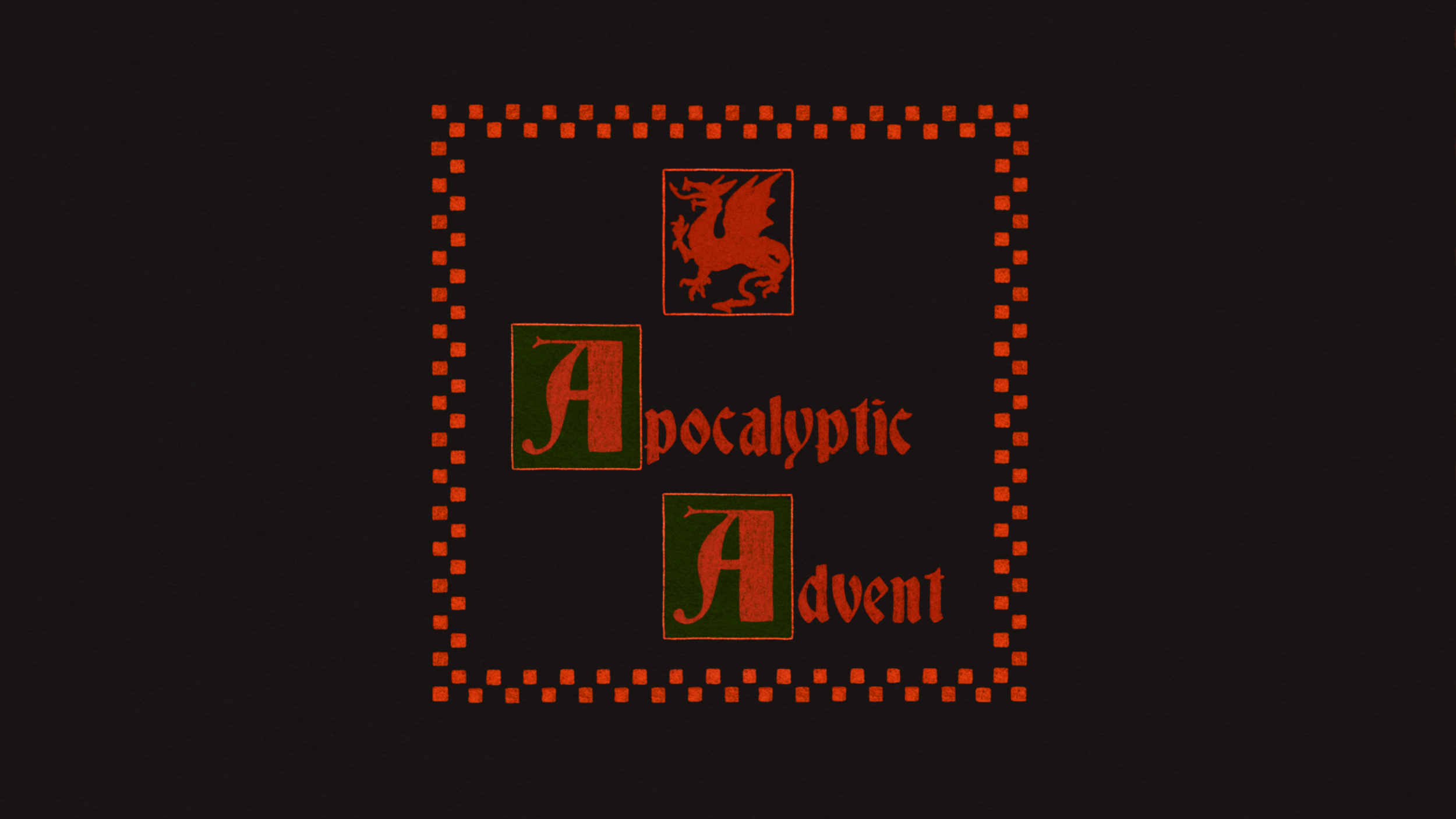
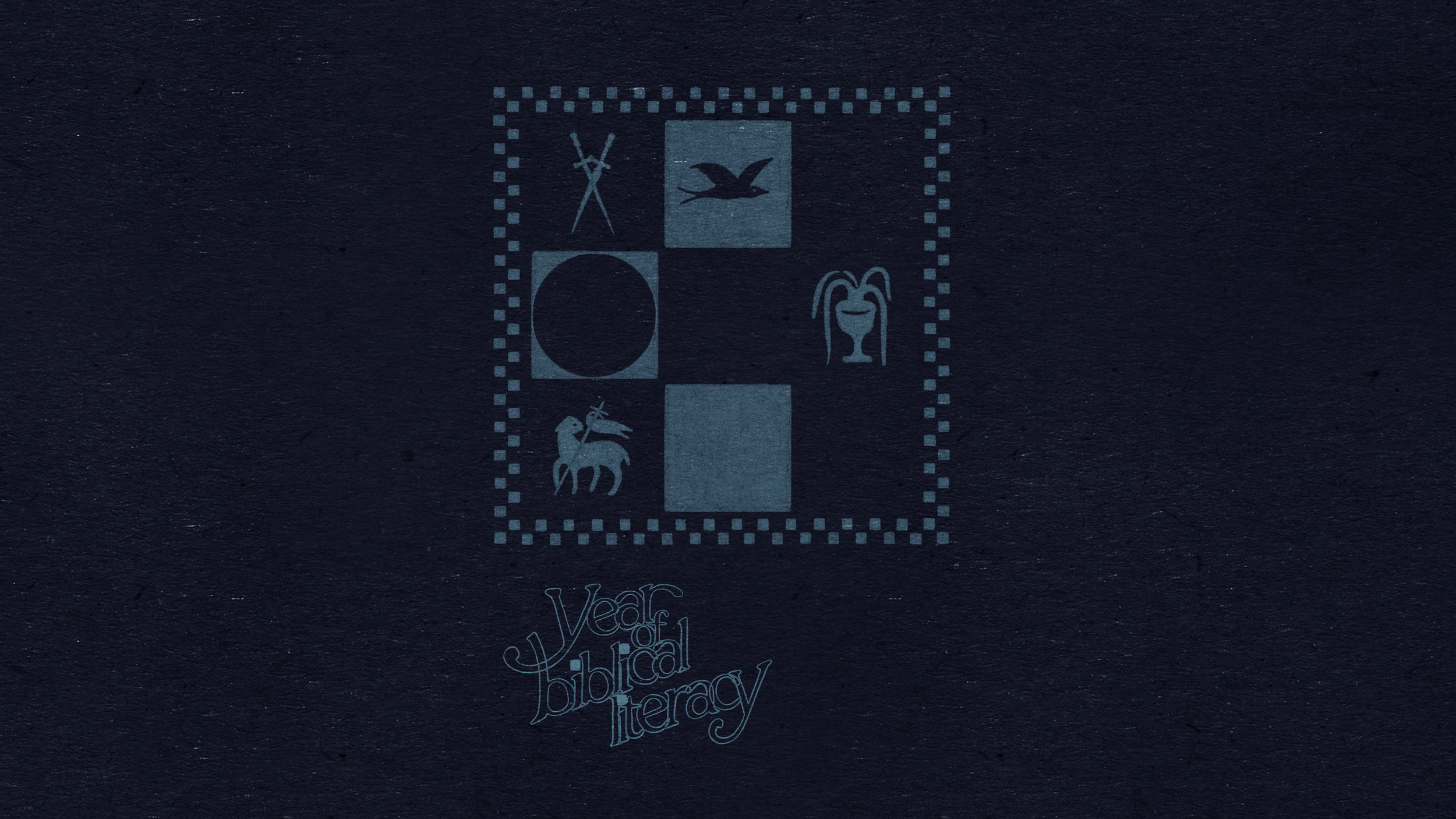

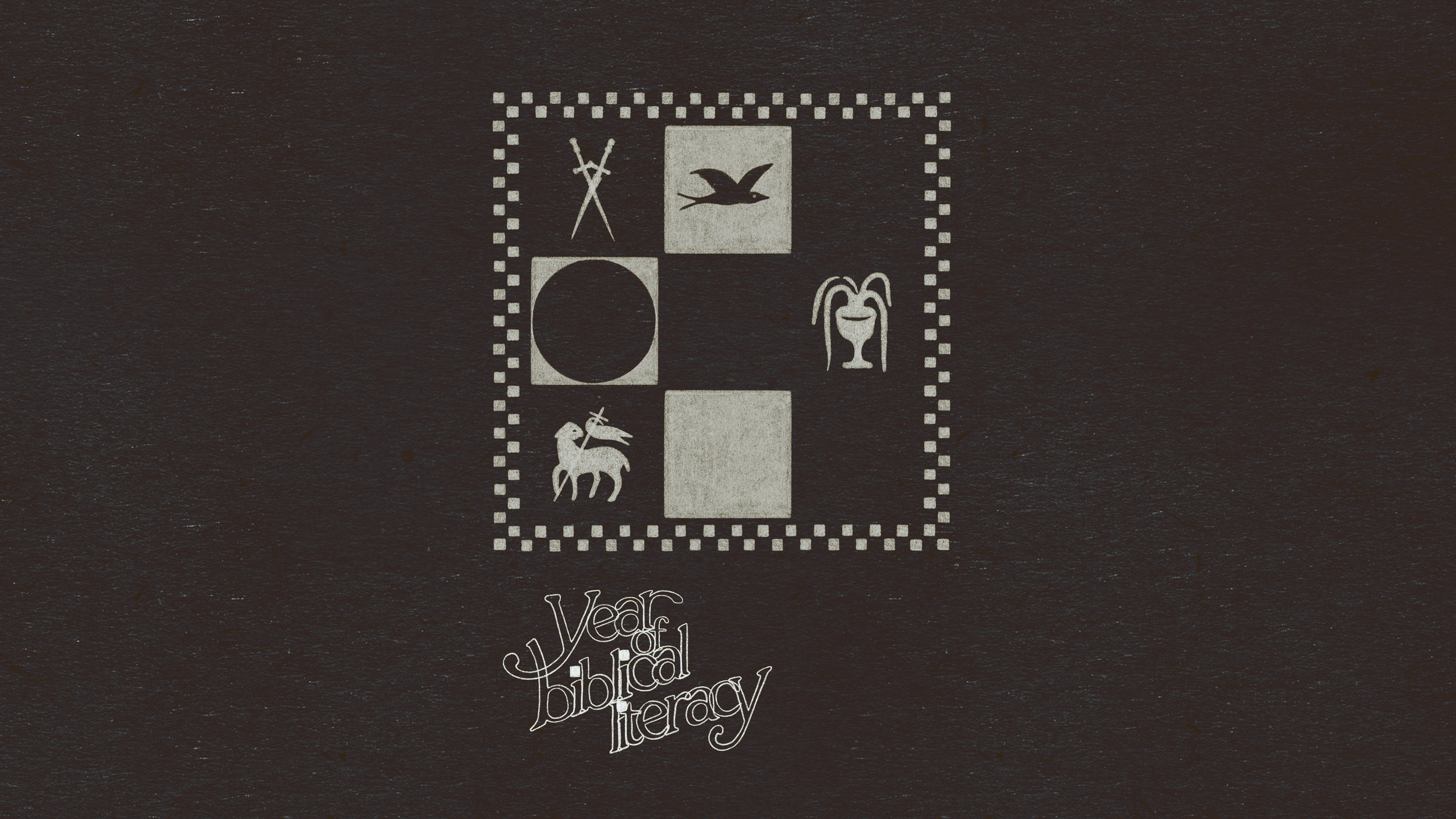

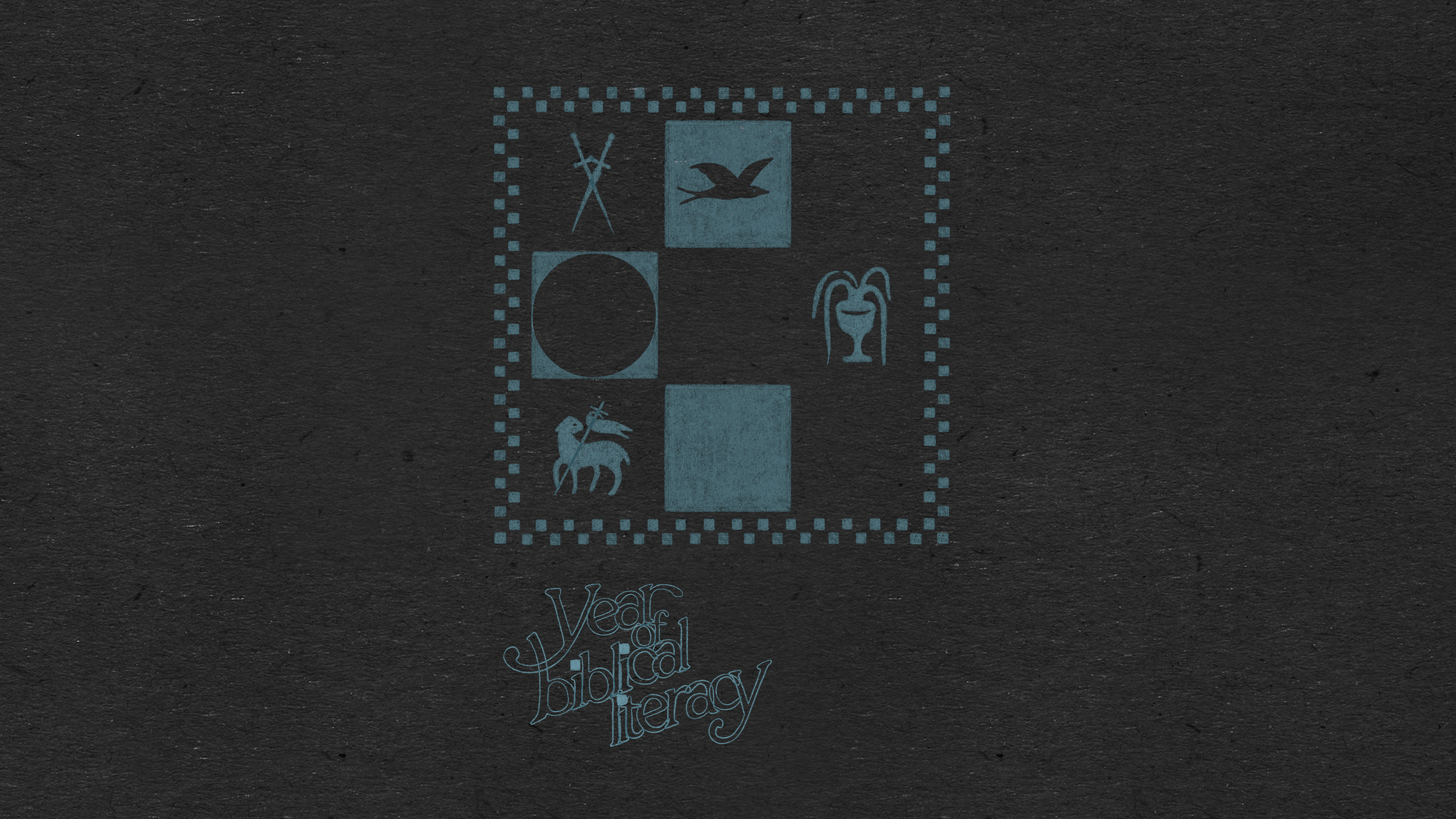



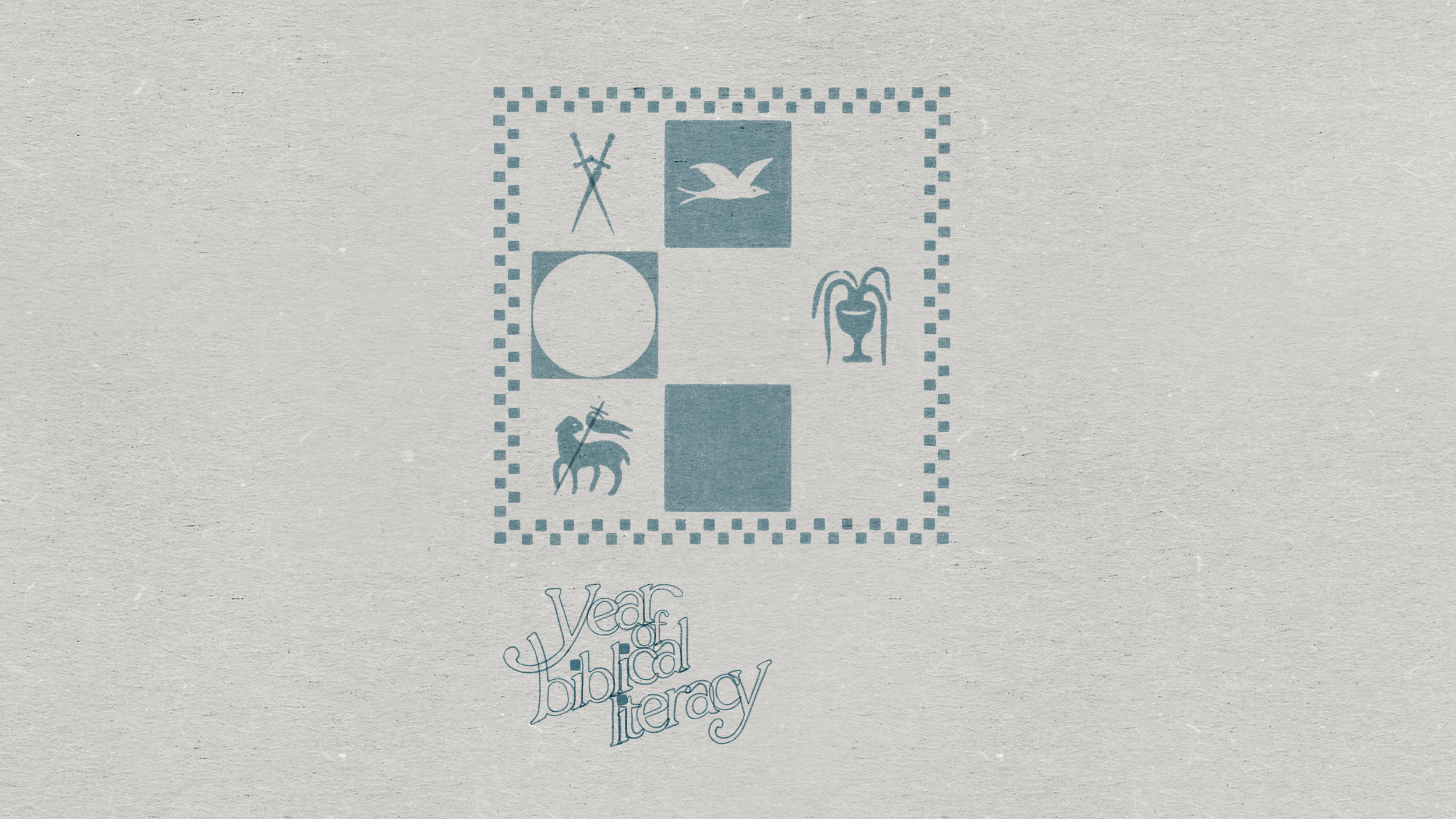
As we move beyond Christmas, we resist the rush to move on and linger with the incarnation. Our hope is not found in plans or resolve, but in Jesus Christ—present, reigning, and faithful.